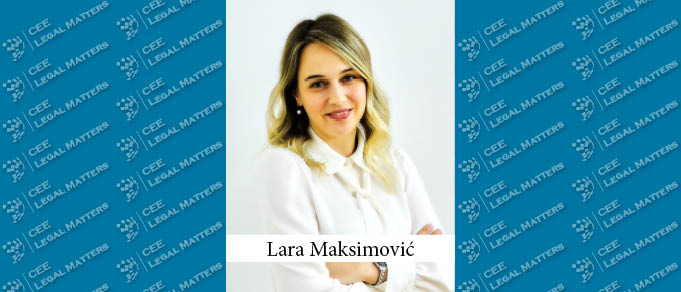Last month, Freedom House published its annual report on freedom on the Internet (the “Report”), where Serbia got 71 out of 100 points, thus taking the 15th place among 70 countries where the said research had been conducted.
Freedom House Report
According to the Report, Serbia’s internet freedom environment remains relatively open, featuring high levels of internet access, limited website blocking, and constitutional protection of freedom of speech and journalists. However, there has been an increase in disinformation spread by certain sites, and certain journalists faced not only harassment and threats in response to their reporting, but also criminal charges in relation thereto.
Moreover, the Report notes that there has been pressure on independent media, the political opposition and civil society organisations, and the surveillance infrastructure also poses concerns, as law enforcement and security agencies have historically accessed telecommunications metadata without adhering to proper legal procedures.
Violations of User Rights
The Report gives special attention to violation of internet users’ rights, thus focusing on the following matters:
- Do the constitution or other laws fail to protect rights such as freedom of expression, access to information, and press freedom, including on the internet, and are they enforced by a judiciary that lacks independence?
The Report enlists several provisions of Serbian regulations, notably the Constitution (articles 46, 50 and 51), Law on Public Information and Media (Article 52) and Criminal Code (Article 138, paragraph 3), which regulate the right to freedom of thought and expression, journalistic privilege and protection of journalists’ safety, which are nevertheless not implemented sustainably in practice.
Namely, while the judiciary is nominally independent, it often comes under the influence of officials, and reports from the European Commission have noted that judicial reforms intended to bolster judicial independence have stalled.
- Are there laws that assign criminal penalties or civil liability for online activities, particularly those that are protected under international human rights standards?
The Report points out that, although constitutional and legal provisions governing this matter are largely aligned with international standards, they could be abused, i.e. interpreted to enable penalisation of legitimate online activities, and justify repressive actions.
An example for the above stated are provisions of Article 46, paragrah 2 and Article 50 of the Constitution.
- Are individuals penalized for online activities, particularly those that are protected under international human rights standards?
The Report further notes that coverage period featured several cases in which users were sued or even detained for their online speech, and private lawsuits were filed against the media for alleged violation of honour and reputation, which is characterised as a clear example of their intimidation (considering that the lawsuits were not preceded by any denial, nor did they target specific news outlets).
- Does the government place restrictions on anonymous communication or encryption?
The Report states that there are no legal repercussions for using encrypted services in Serbia, and there is no requirement for individuals to register with the government to use online services.
However, there are initiatives of certain officials calling for legislation which would criminalize the possession of devices and other means that enable encrypted communication, and which would require citizens to provide accurate personal data when creating a social media content.
- Does state surveillance of internet activities infringe on users’ right to privacy?
The Report further enlists several situations that occurred in the coverage period, which are problematic from the aspect of state surveillance of Internet activities, including the installation of surveillance cameras with facial recognition technology on the streets of Belgrade, as well as comments about unreleased articles and correspondence between journalists and their sources.
- Does monitoring and collection of user data by service providers and other technology companies infringe on users’ right to privacy?
Although Serbia has a satisfactory regulatory framework on personal data protection, which is in line with international standards in the subject field, SHARE Foundation’s research on data retention practices in Serbia has revealed that state authorities access the metadata stored by telecommunication forms directly through “applications for independent access”, which are of dubious legality.
Also, certain international technology companies are still to appoint their local representative for personal data protection in Serbia, which is their obligation under the Law on Personal Data Protection.
- Are individuals subject to extralegal intimidation or physical violence by state authorities or any other actor in relation to their online activities?
During the coverage period, journalists faced several assaults, both online and offline, including verbal threats and physical assaults, destruction and confiscation of their equipment.
Women journalists and women in general are exposed to special attacks, as well as the migrant population.
- Are websites, governmental and private entities, service providers, or individual users subject to widespread hacking and other forms of cyberattack?
According to the Report, cyberattacks are relatively common in Serbia and civil society, and independent media outlets are often targeted.
There is a special Prosecution for Cybercrime, but given the sheer number of incidents and the fact that it is the only authority tasked with such cases, it has struggled to keep up with a growing backlog, i.e. failure to take appropriate actions.
This article is to be considered as exclusively informative, with no intention to provide legal advice. If you should need additional information, please contact us directly.
By Lara Maksimovic, Senior Associate, PR Legal
